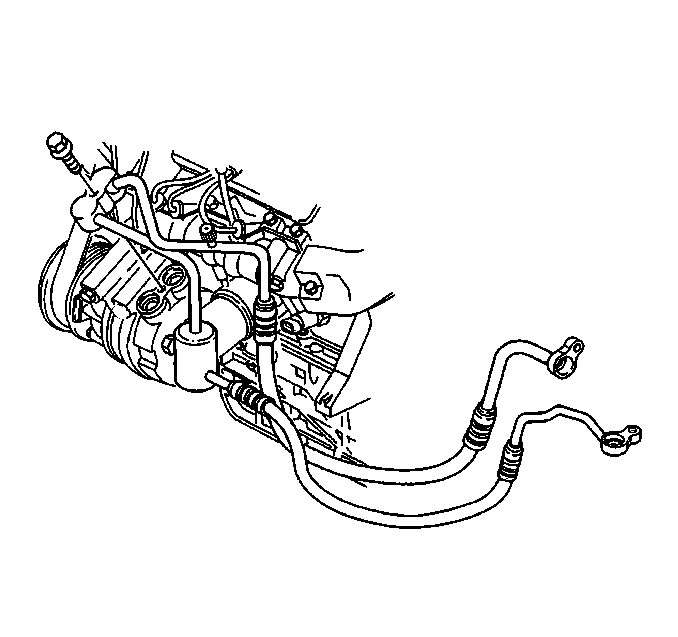Caution: Avoid breathing the A/C Refrigerant 134a (R-134a) and the lubricant
vapor or the mist. Exposure may irritate the eyes, nose, and throat. Work
in a well ventilated area. In order to remove R-134a from the A/C system,
use service equipment that is certified to meet the requirements of SAE J
2210 (R-134a recycling equipment). If an accidental system discharge occurs,
ventilate the work area before continuing service. Additional health and safety
information may be obtained from the refrigerant and lubricant manufacturers.
The refrigerant performs a function which is similar to
the engine coolant. The refrigerant is the medium within the A/C system
that performs the following functions:
Although various substances are used as refrigerants in other types
of refrigeration systems, past automotive air conditioning systems used a
type of fluid called Refrigerant-12 (R-12). This vehicle uses a
new type of refrigerant which is called Refrigerant-134a (R-134a). R-134
is a liquefied gas which has the following properties:
The R-134a A/C system is very similar to an R-12 A/C system. However,
the differences in the following components are important:
| | Notice: R-12 refrigerant and R-134a refrigerant must never be mixed,
even in the smallest of amounts, as they are incompatible with each other.
If the refrigerants are mixed, compressor failure is likely to occur. Refer
to the manufacturer instructions included with the service equipment before
servicing.
|
| | Notice: Use only Polyalkylene Glycol Synthetic Refrigerant Oil (PAG) for internal
circulation through the R-134a A/C system and only 525 viscosity mineral oil
on fitting threads and O-rings. If lubricants other than those specified are
used, compressor failure and/or fitting seizure may result.
|
Muffler

A muffler is used on some
refrigerant systems in order to reduce the following conditions:
| • | High-pressure-line vibrations |

